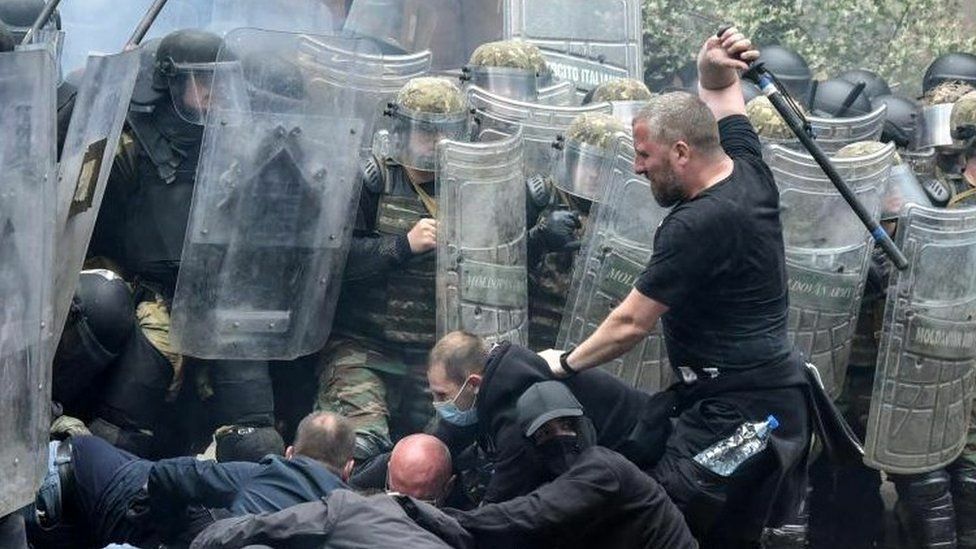US punishes Kosovo for forcibly installing Albanian mayors, cancels Nato exercise

Tensions have escalated in northern Kosovo following the forced installation of ethnic Albanian mayors in majority-Serb areas, leading to the United States taking measures against the country. Clashes between police, NATO troops, and Serb protesters in Zvecan resulted in injuries to 30 peacekeepers and 52 demonstrators. In response, NATO plans to deploy an additional 700 troops to the region.
The crisis began in April when local elections in north Kosovo were boycotted by ethnic Serbs, resulting in ethnic Albanians taking control of local councils with a turnout of less than 4%. Both the US and the European Union have accused Kosovo of destabilising the situation and warned against actions that could exacerbate ethnic tensions.
Kosovo declared independence from Serbia in 2008 and has been recognised by the US and major EU countries. However, Serbia, backed by Russia, refuses to recognise Kosovo’s independence, as do most ethnic Serbs within the country. While ethnic Albanians make up over 90% of Kosovo’s population, Serbs are the majority in the northern region.
The US ambassador in Pristina, Jeffrey Hovenier, stated that the US “foresaw the consequences” of forcibly installing ethnic-Albanian mayors in four majority-Serb municipalities. Despite being a strong ally of Kosovo, the US “strongly advised” Prime Minister Albin Kurti to change his course of action. However, this advice was ignored, leading to Kosovo’s expulsion from participating in the NATO exercise, Defender Europe 23. Hovenier also said the US was considering further measures and currently “has no enthusiasm” to assist Kosovo in gaining wider international recognition or progressing towards EU and NATO membership.
Serbian President Aleksandar Vucic and Kosovan PM Albin Kurti have traded accusations over the violent incidents. Vucic claimed Kurti “alone is responsible” for the disturbances, while Kurti alleged the protesters in Zvecan were “a bunch of extremists under the direction of official Belgrade”.
NATO’s chief, Jens Stoltenberg, called for an end to the violence and condemned the “unprovoked attacks against KFOR troops” – NATO’s peacekeeping force in Kosovo. Ethnic Serbs in north Kosovo, however, criticised KFOR for failing to prevent armed Kosovo police from entering municipal buildings and removing Serbian flags.
The 700 additional NATO troops will join the existing 3,800 on duty in Kosovo, with an extra reserve battalion on standby, ready to deploy within seven days if needed. KFOR’s mission is to ensure the safety and freedom of movement for everyone in Kosovo, regardless of their ethnicity. The new troops will face significant expectations from both sides following this week’s disturbances.
Latest Thailand News
Follow The Thaiger on Google News:


























